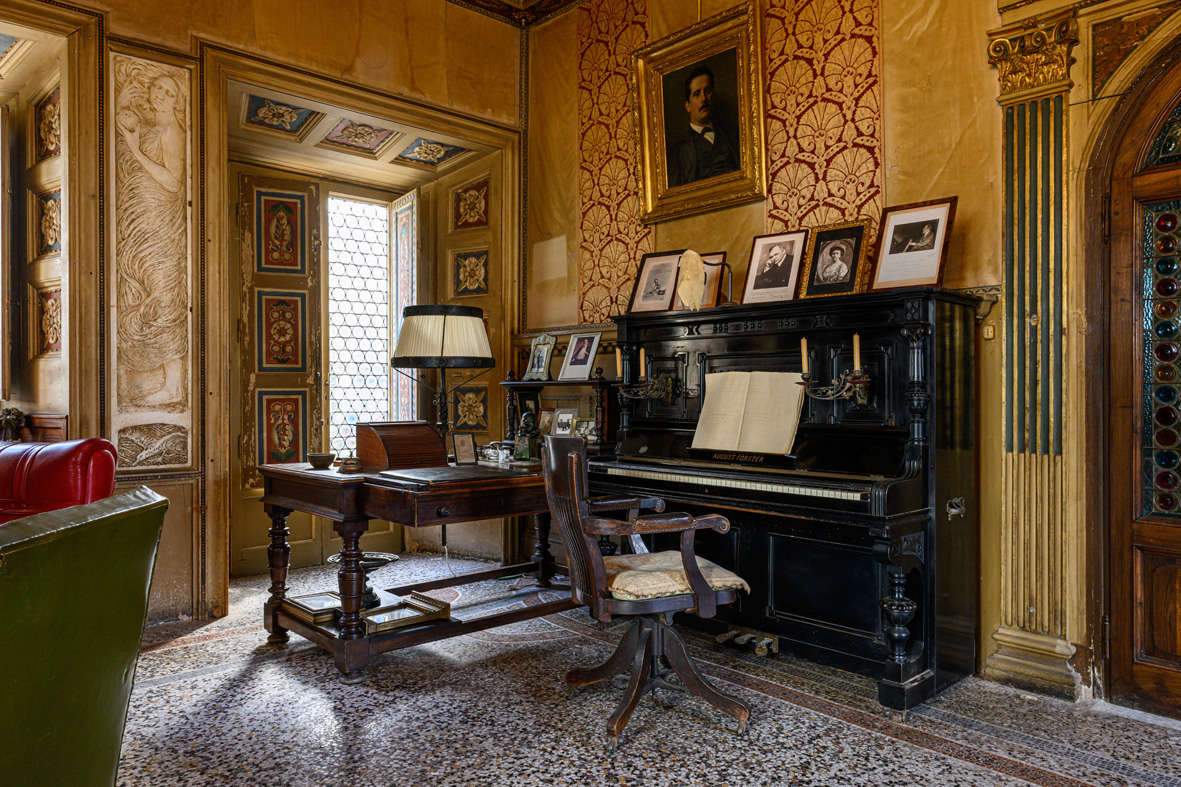Torre del Lago, major new acquisitions for the Villa Museo Puccini
In Torre del Lago, the Villa Museo Puccini is enriched with new fragments of the life and work of the celebrated composer Giacomo Puccini (Lucca, 1858 - Brussels, 1924). ThePuccini Archive, custodian of more than 28,500 pieces including autograph manuscripts, letters, notes and original librettos, an extraordinary patrimony for the study of his immense artistic production, thanks to the efforts of the Fondazione Simonetta Puccini per Giacomo Puccini, continues to be enriched over time. An ongoing effort aims to reconstruct and integrate the heritage, recovering papers that have been dispersed over the years. This archive, already declared a fund of historical interest by the Ministry of Culture, is replenished with some important acquisitions among which stands out a precious booklet containing writings by the maestro addressed to the family of his mother, Albina Magi, starting in 1898. Puccini, the sixth of nine children and orphaned by his father at a young age, maintained deep ties with his siblings and maternal relatives. It was his uncle Fortunato Magi, director of the Venice Conservatory, who was among the young composer’s first music teachers.
Another significant addition came from a well-known auction house, which offered a remarkable lot of musical manuscripts for piano and organ. These documents, an integral part of compositions already held in the archive, are essential to ensure the completeness of the collection and offer a more comprehensive view of Puccini’s oeuvre.
The important work of reconstructing the Puccini Archive is made possible not only through institutional efforts, but also through the important contributions of private individuals. Prominent among recent donations is that of Luciano Birghillotti, a former Florentine school principal and music enthusiast, who in 1991 met Simonetta Puccini, the maestro’s granddaughter, during the naming ceremony of an elementary school dedicated to him. Birghillotti generously donated to the foundation an autograph minute book, some opera librettos of the time and a clipping from the daily newspaper La Nazione from November 1924, the day after Puccini’s death. The donations also include an autograph telegram received as a legacy from his grandfather, a stationmaster in Capalbio, which Puccini sent to playwright Giovacchino Forzano to warn him of an opera rehearsal in Turin. Sandra Nicolini also contributed the donation of a historical journal published on the occasion of the composer’s death in 1924.
In addition to the public and artistic dimensions of Puccini, famous for operas such as La bohème, Tosca, Madama Butterfly and La fanciulla del west, his private sphere also emerges. Among the documents acquired are seven newspaper clippings on which Puccini wrote notes regarding the tragic affair of Doria Manfredi, the young maid who committed suicide following his wife Elvira’s accusations of an affair with the maestro. These fragments, gladly returned from the collection of Admiral Luigi Romani, offer a more intimate look at Puccini’s life. The Foundation has also acquired some 20 letters and memoirs containing autograph comments on Doria Manfredi’s story, allowing a deeper look into the musician’s complex personality beyond his artistic work.
Finally, further enriching the archival collection are two letters by Giacomo Puccini addressed to his friend and painter Ferruccio Pagni, donated by music enthusiast Mauro Masini. These precious testimonies were preserved in Torre del Lago, the very place where they were written. The friendship between the operist and the Leghorn artist, who attended the Academy of Fine Arts in Florence under Giovanni Fattori, has deep roots, dating back to 1891 on the shores of Lake Massaciuccoli, where Puccini resided and where Pagni found inspiration for his works.
These documents enrich and complete the historical-documentary heritage linked to the memory of the great composer, offering scholars from around the world new opportunities for research and in-depth study.
 |
| Torre del Lago, major new acquisitions for the Villa Museo Puccini |
Warning: the translation into English of the original Italian article was created using automatic tools. We undertake to review all articles, but we do not guarantee the total absence of inaccuracies in the translation due to the program. You can find the original by clicking on the ITA button. If you find any mistake,please contact us.





























